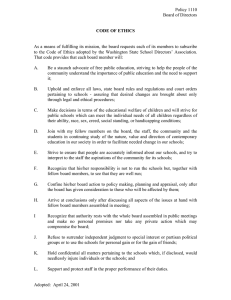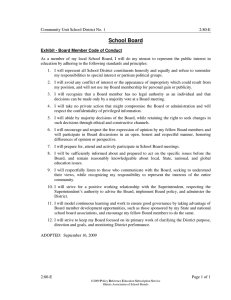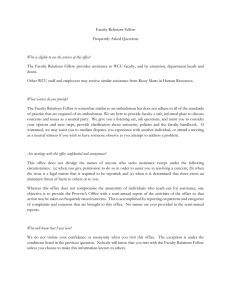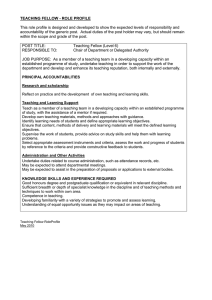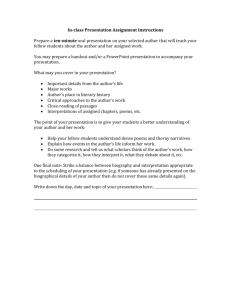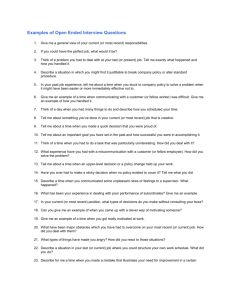R 1500 Code of Ethics 1.
advertisement
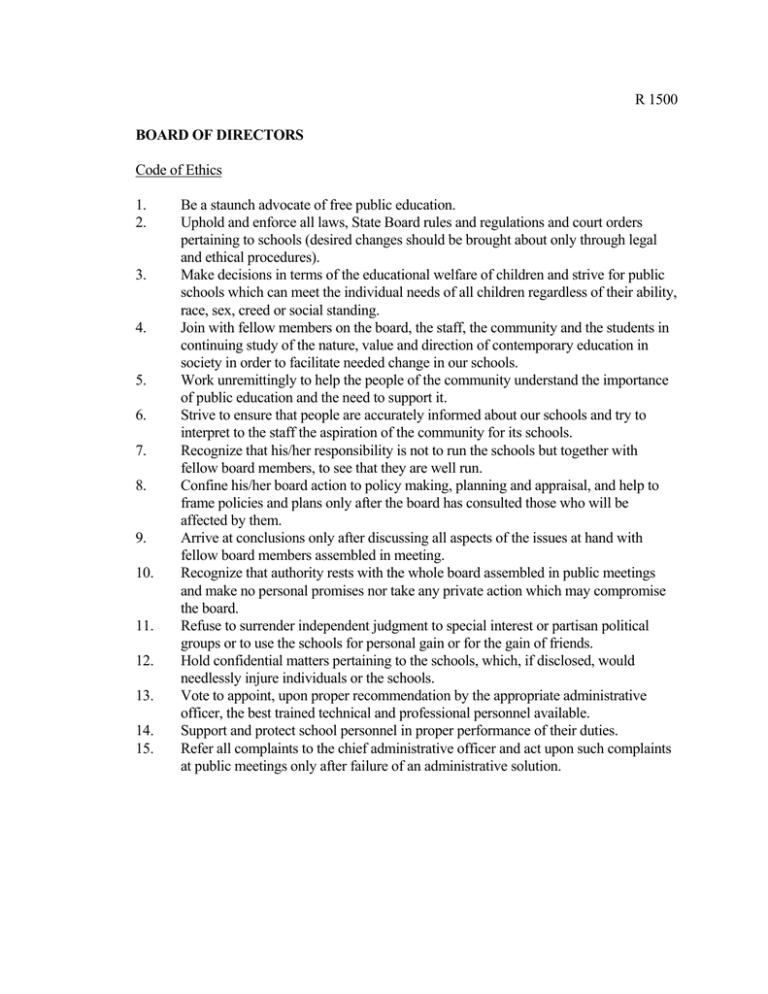
R 1500 BOARD OF DIRECTORS Code of Ethics 1. 2. 3. 4. 5. 6. 7. 8. 9. 10. 11. 12. 13. 14. 15. Be a staunch advocate of free public education. Uphold and enforce all laws, State Board rules and regulations and court orders pertaining to schools (desired changes should be brought about only through legal and ethical procedures). Make decisions in terms of the educational welfare of children and strive for public schools which can meet the individual needs of all children regardless of their ability, race, sex, creed or social standing. Join with fellow members on the board, the staff, the community and the students in continuing study of the nature, value and direction of contemporary education in society in order to facilitate needed change in our schools. Work unremittingly to help the people of the community understand the importance of public education and the need to support it. Strive to ensure that people are accurately informed about our schools and try to interpret to the staff the aspiration of the community for its schools. Recognize that his/her responsibility is not to run the schools but together with fellow board members, to see that they are well run. Confine his/her board action to policy making, planning and appraisal, and help to frame policies and plans only after the board has consulted those who will be affected by them. Arrive at conclusions only after discussing all aspects of the issues at hand with fellow board members assembled in meeting. Recognize that authority rests with the whole board assembled in public meetings and make no personal promises nor take any private action which may compromise the board. Refuse to surrender independent judgment to special interest or partisan political groups or to use the schools for personal gain or for the gain of friends. Hold confidential matters pertaining to the schools, which, if disclosed, would needlessly injure individuals or the schools. Vote to appoint, upon proper recommendation by the appropriate administrative officer, the best trained technical and professional personnel available. Support and protect school personnel in proper performance of their duties. Refer all complaints to the chief administrative officer and act upon such complaints at public meetings only after failure of an administrative solution.
